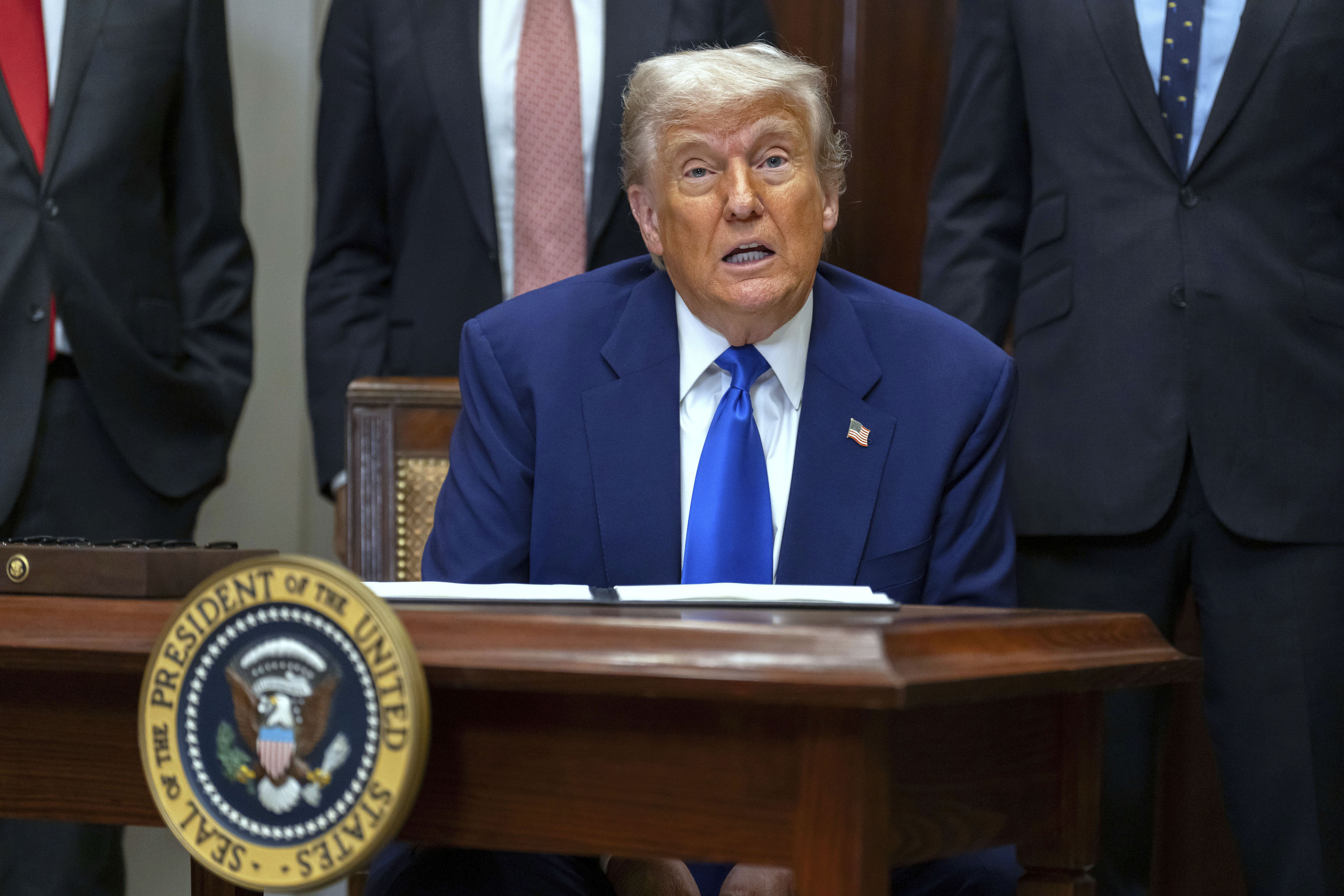The President of the United States, Donald Trump, will start a tour of the Middle East tomorrow, Tuesday, with planned stops in Saudi Arabia, the United Arab Emirates, and Qatar, where he could take the opportunity to close one of the most unusual deals possible, accepting a $400 million plane as a gift for his official travels, as he has disliked the usual Air Force 1 decoration since his first term.
There are currently no additional stops on the itinerary, not even Israel, despite the desperate attempts by Prime Minister Benjamin Netanyahu, alarmed by Washington's direct negotiations with Iran but also with Yemen and Hamas, which have led to the release of the last American hostage kidnapped in the attacks on October 7. However, although there is nothing else on the agenda, Trump said on Monday that he is considering the possibility of making a detour and traveling to Turkey to join the negotiations between Russia and Ukraine if he believes his presence "could be useful." "Do not underestimate the meeting on Thursday in Turkey. President Erdogan will be an excellent host."
This is how the president explained it from the White House in a somewhat confusing appearance, initially intended to discuss medications but ending up in a speech about tariffs, the relationship with China, the conflict between India and Pakistan, the "genocide of white farmers in South Africa", in his words, and the peace negotiations to end the war in Ukraine, something he promised during the campaign would happen on the first day of his term but has been delayed. "I was thinking of going. I don't know where I'll be on Thursday, I have many meetings, but I was thinking of flying. I suppose there is a possibility, if I believe that things can be achieved, but we have to do it," he told reporters at the White House.
When asked if the US would join the EU in imposing tougher sanctions on Russia if Vladimir Putin does not accept a ceasefire of at least 30 days and does not show up in Turkey for negotiations, as Volodymyr Zelensky has challenged him to do, Trump said he had "a feeling they will accept the truce, I have that feeling," he reiterated. Despite the insistence in the questions, given that Moscow has already clearly opposed the idea, Trump vaguely mentioned that more sanctions would be an option, but without going into detail, as he has done from day one. "If I deemed it important to close the deal," he simply said. "I insisted on the meeting, one said there had to be a ceasefire and the other that it had to be discussed. I told them: 'look, at this point we have to stop it. Just attend the meeting.' The meeting is already scheduled. And if I believed it would be useful, because I don't know where I'll be at that particular moment, somewhere in the Middle East, I would fly there if I thought it would be useful," the president added.
The Gulf countries have a privileged relationship with Trump. They have forged personal ties with the president and his family. They have promised tens of billions of dollars in investments in the US, buy weapons worth billions from American companies. Additionally, they present themselves as key intermediaries in the conflicts that Trump wants to resolve, from Gaza to Yemen, through Ukraine and even Iran, a destabilizing factor in the region.
That is why they will be the hosts of Trump's first State visit in his second term. Trump, via the United Kingdom, will land in Saudi Arabia on Tuesday, followed by visits to Qatar and subsequently to the United Arab Emirates, which will extend until May 16. That is if there are no developments in Turkey.
The trip is a hornet's nest. Trump has ordered bombings on the Houthis in Yemen, only to later state that they were brave and tough people who had agreed not to attack more ships in the area. He has humiliated and threatened the Palestinians, saying they will have to leave their lands forever, only to then negotiate directly with Hamas, something none of his predecessors had done. He has urged Jordan and Egypt to accept millions of displaced people, but does not visit the countries in this displacement.
In addition to all this, there is the negotiation of a nuclear agreement with Iran and the shift in policy towards Syria, at the request of Recep Tayyip Erdogan, whom Trump praised on Monday and considered a "great host," advocating for a ceasefire agreement between Kiev and Moscow under his diplomatic umbrella.
Addressing this issue, Trump said he could ease US sanctions against Syria in response to a request from the Turkish president: "We will have to make a decision on the sanctions, which we could very well ease because we want to give them a fresh start. President Erdogan has asked me about that. Many people have asked me about that," the president said.
